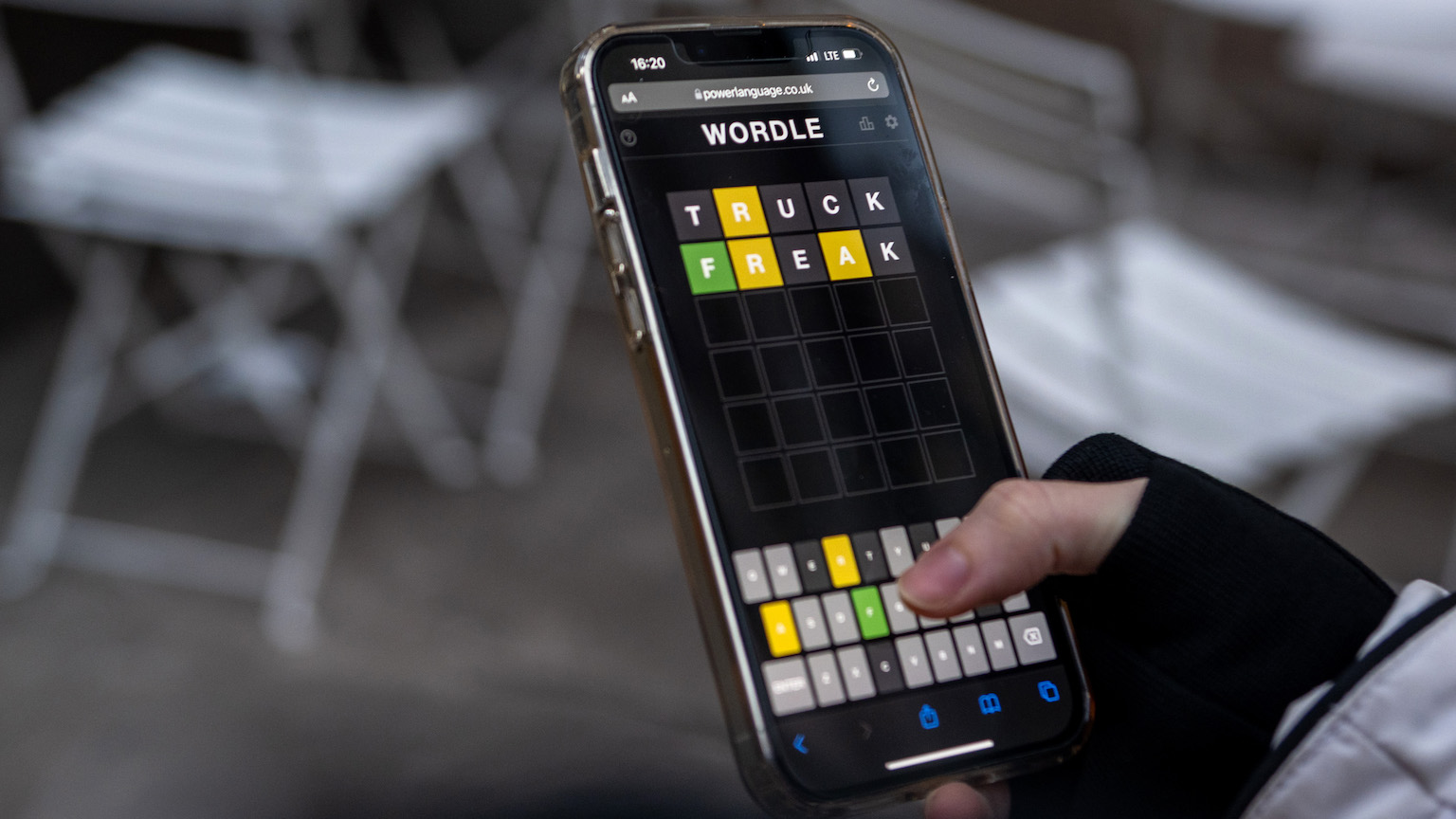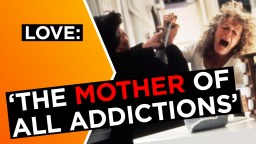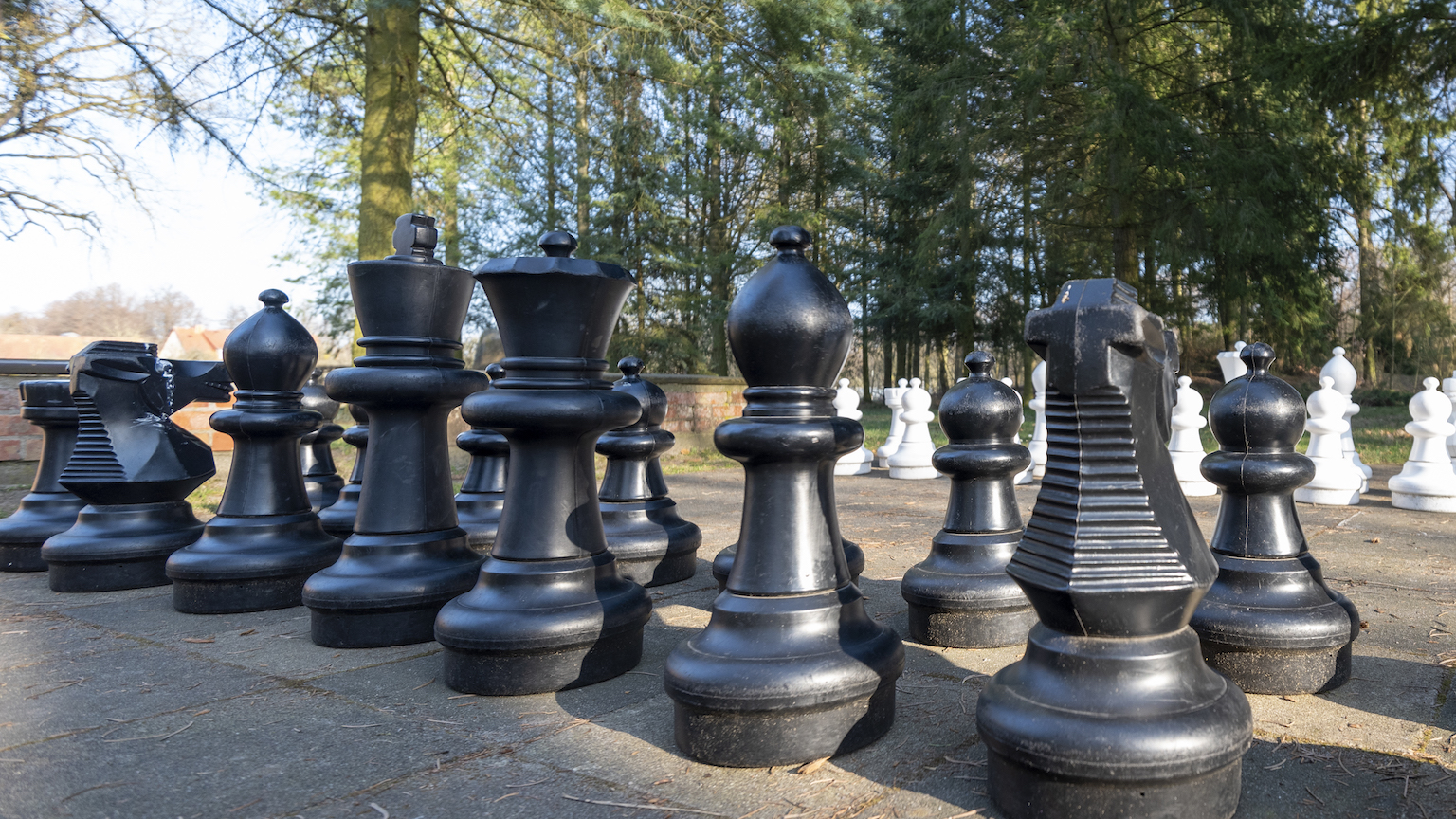Psychology of Wordle: Why are people addicted to this viral word game?

- Wordle is the latest fad in a long list of gaming obsessions, going from obscurity to fame in only a few months.
- The game activates both the language and logic parts of our brain.
- It also rewards you with dopamine even if you don't win.
If you have spent any time on social media in the last few weeks or months, you might have noticed people posting strange, little, green-yellow grids. Friends you grew up with and distant Hollywood celebrities are all posting their “Wordle” scores. It’s the game of the times — the latest fad — and if you’re not addicted to it yet, just give it a go. It’s highly likely you soon will be.
There have been gaming trends and obsessions for as long as there have been games at all. You might remember yo-yos, Rubik’s Cubes, Farmville, or Pokémon Go depending on your age and stage of life. And now, at the end of a very long list, we have Wordle.
But what is it about Wordle which makes it quite so addictive? What psychological buttons does it press? What ludic itches does it scratch?
The making of a fad
Wordle is a curious mix of word game and logic puzzle. It’s as if Mastermind and Hangman had a digital lovechild. The idea is that you have to guess a five-letter word. After each guess, the game will tell you if you have got a letter right. If it is correct but in the wrong position, it will be shaded yellow. If it is right and in the correct position, you get a satisfying green. You have five guesses to work your way to the answer.
Given the hype around the game, you might be surprised when you first search “Wordle.” Rather than having a multi-platform, shiny mobile app or even its own website, you get a URL that leaves most people wondering, “Is this the right thing?” The reason for this is that Wordle is only one project by the New York based software engineer, Josh Wardle (a surname only one vowel away from Wordle). Wardle and his partner created the game as a breezy pastime. But when he released it to the public in October 2021, it took flight. Three months later, Wordle was being played by 2 million people.
Your mind on Wordle
So, why is Wordle quite so addictive? After all, Sudoku and Scrabble have had their time, so aren’t these kinds of games old hat?
The answer, according to British psychologist Lee Chambers, is that Wordle activates both the language and logic parts of our brain. Our brains enjoy puzzles because they represent a challenge or difficulty to overcome. For however frustrating a game might be, the dopamine reward we get as we beat or win the game is blissful. Most of the things that we do for pleasure, as well as all of our addictions, are simply for the want of dopamine. That is not to say that Wordle is the same as cocaine, but it certainly uses the same brain mechanisms. The dopamine hit of completing Wordle gives you pleasure, because dopamine is what it means to have pleasure.
But, even a lost game of Wordle makes you come back for more. The frustration needs to be satiated. Like some caged mouse desperately pushing a lever for “just one more” hit, the defeated Wordle player needs to come back. Second, Wordle does not let you go home without a prize. Even if you lose, the answer gets revealed — which, if not as pleasant as winning, still gives you some sense of completion and satisfaction.
I beat you!
At least part of Wordle’s success is no doubt due to how social media friendly it is. It is easy to share, and the yellow-green grid makes for pleasant viewing. What’s more, the distinctive colored grid stands out just enough during a half-focused phone scroll. It’s also fun to brag about your incredible success or bemoan loudly about a really hard word you very nearly got. (Here’s looking at you, K-N-O-L-L.)
When we post something on social media, our reward pathways are again activated by the amount of “likes” or engagement we get. It tells us that we fit in and that we belong — both of which are good for our survival, and both of which get a nice little hormonal treat from the brain. As neuroscientist Sebastian Ocklenburg points out, “Research has shown that likes on social media are seen as a numeric representation of social acceptance.”
But, Wordle’s astronomic success cannot be explained with one simple answer. Yes, it rewards the brain. Yes, it’s challenging, yet doable. Yes, it’s easy to share on social media. But there are millions of games that do that which are lost in the backroom recesses and unknown nooks of the internet. Success begets success in the social media age, and the more your friends are doing it, and the more people are talking about it, the more you are likely to do it. Josh Wardle and his Wordle are just lucky to ride that wave. And employees the world round are likely much less productive thanks to it.
Jonny Thomson teaches philosophy in Oxford. He runs a popular Instagram account called Mini Philosophy (@philosophyminis). His first book is Mini Philosophy: A Small Book of Big Ideas.





